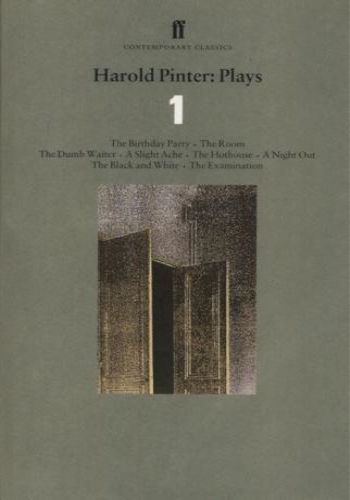This volume contains Harold Pinter's first six plays, including The Birthday Party.
The Birthday Party
Stanley Webber is visited in his boarding house by two strangers, Goldberg and McCann. An innocent-seeming birthday party for Stanley turns into a nightmare.
'Mr Pinter's terrifying blend of pathos and hatred fuses unforgettably into the stuff of art.' Sunday Times
The Room and The Dumb Waiter
In these two early one-act plays, Harold Pinter reveals himself as already in full control of his unique ability to make dramatic poetry of the banalities of everyday speech and the precision with which it defines character.
'Harold Pinter is the most original writer to have emerged from the "new wave" of dramatists who gave fresh life to the British theatre in the fifties and early sixties.' The Times
The Hothouse
The Hothouse was first produced in 1980, though Harold Pinter wrote the play in 1958, just before commencing work on The Caretaker. In this compelling study of bureaucratic power, we can see the full emergence of a great and original dramatic talent.
'The Hothouse is at once sinister and hilarious, suggesting an unholy alliance of Kafka and Feydeau.' Spectator







